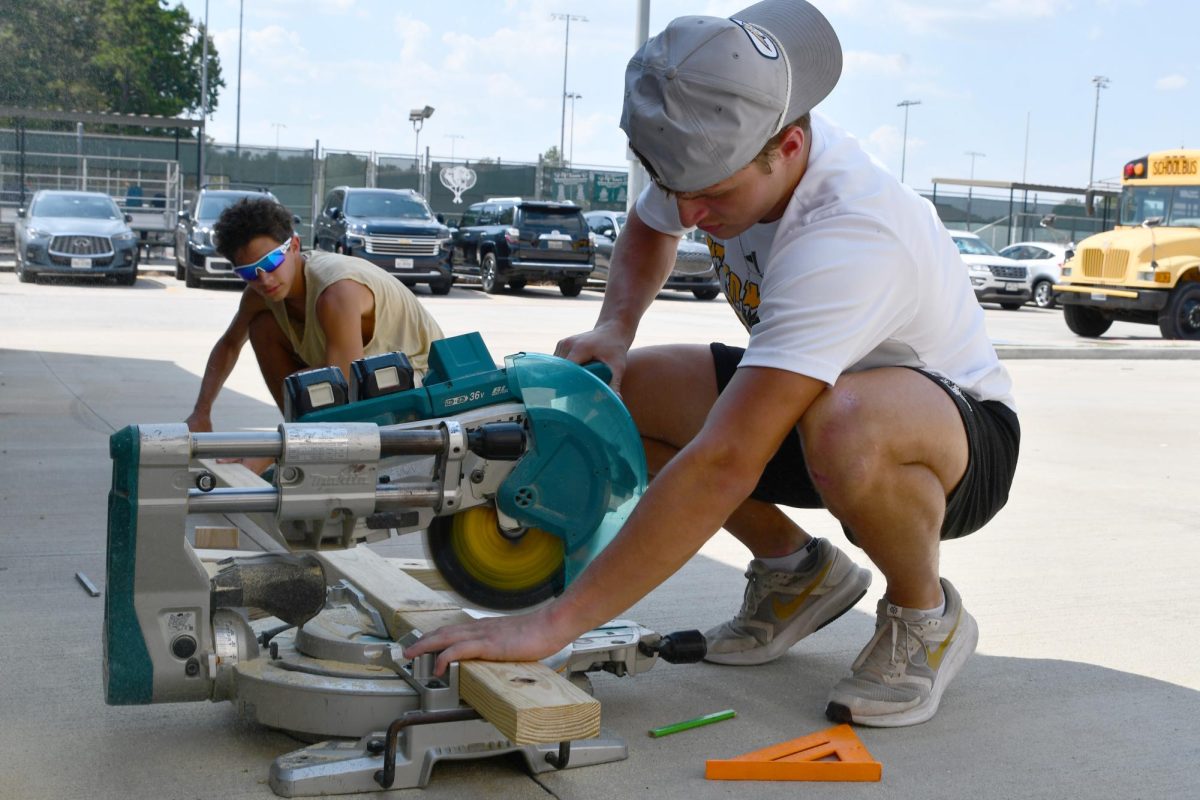Students celebrate traditions from around the world during holidays
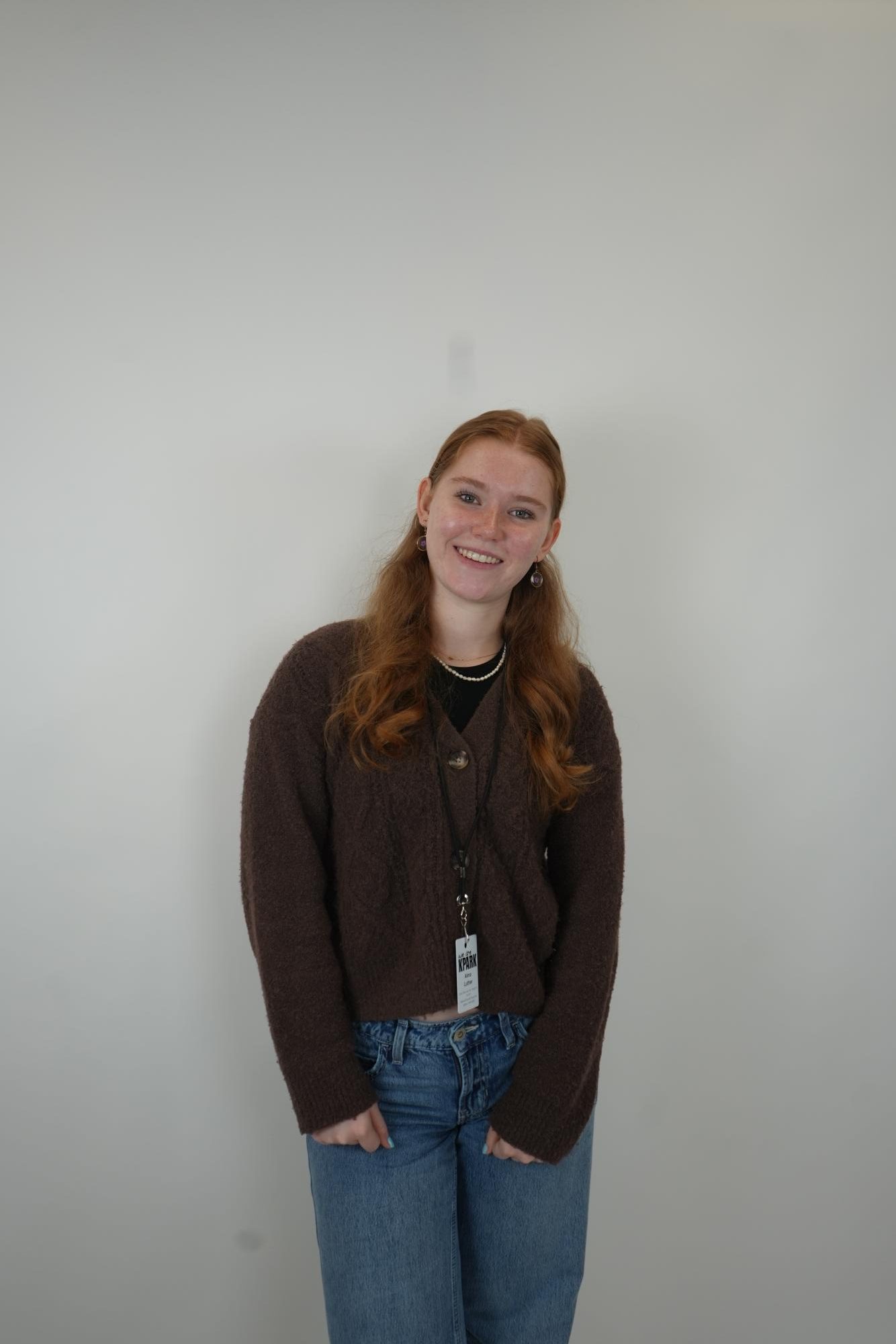
By Michelle Klanke
For German exchange student Alma Luther, Christmas is the most important holiday. She likes it because you come together with your family and have great food. In Germany, families open their presents on Dec. 24.
A huge part of a German Christmas are the German Christmas markets. Luther loves to go to a huge Christmas market that is throughout the entire downtown of her hometown Stuttgartt.
“There are different little houses who just sell different kinds of foods,” Luther said. “You can go ice skating. There’s a very large Christmas tree in downtown, and everything just sparkles and looks pretty.”
A tradition for children is that they do not go into the room with the Christmas tree until they hear their mom or dad ring a bell. That means Santa Clause has come and the room is full of presents.
Luther advises anyone who wants to experience German Christmas for the first time to go visit the markets.
“Go to as many markets as possible,” Luther said. “That’s just one of the greatest things about Christmas time – to go to different Christmas markets and be there with your friends.”

By Michelle Klanke
Junior Caitlin McLain celebrates a Nigerian and traditional American Christmas.
McLain’s family prepares by cleaning the house because her mom always says they “can’t celebrate Jesus’s birthday in a dirty house.”
For her little siblings, McLain hides the Elf on the Shelf from Thanksgiving to Christmas to keep the season magical.
For food, the McLain family has Chinese food on Christmas Eve. On Christmas, her grandmother makes a chocolate pie.
Nigerian Christmases are very centered around religion. On Christmas, her father always reads the Bible, including the part in Luke where it talks about Jesus’ birth. In the evening, her family does karaoke with Christmas songs like “Oh Holy Night.”
To decide who can open the first presents, they hide a pickle ornament. The first to find it, opens the first present.
“In Nigeria, where my grandparents grew up, it wasn’t as present-focused,” McLain said. “It’s more about your family, God, Jesus and all that.”
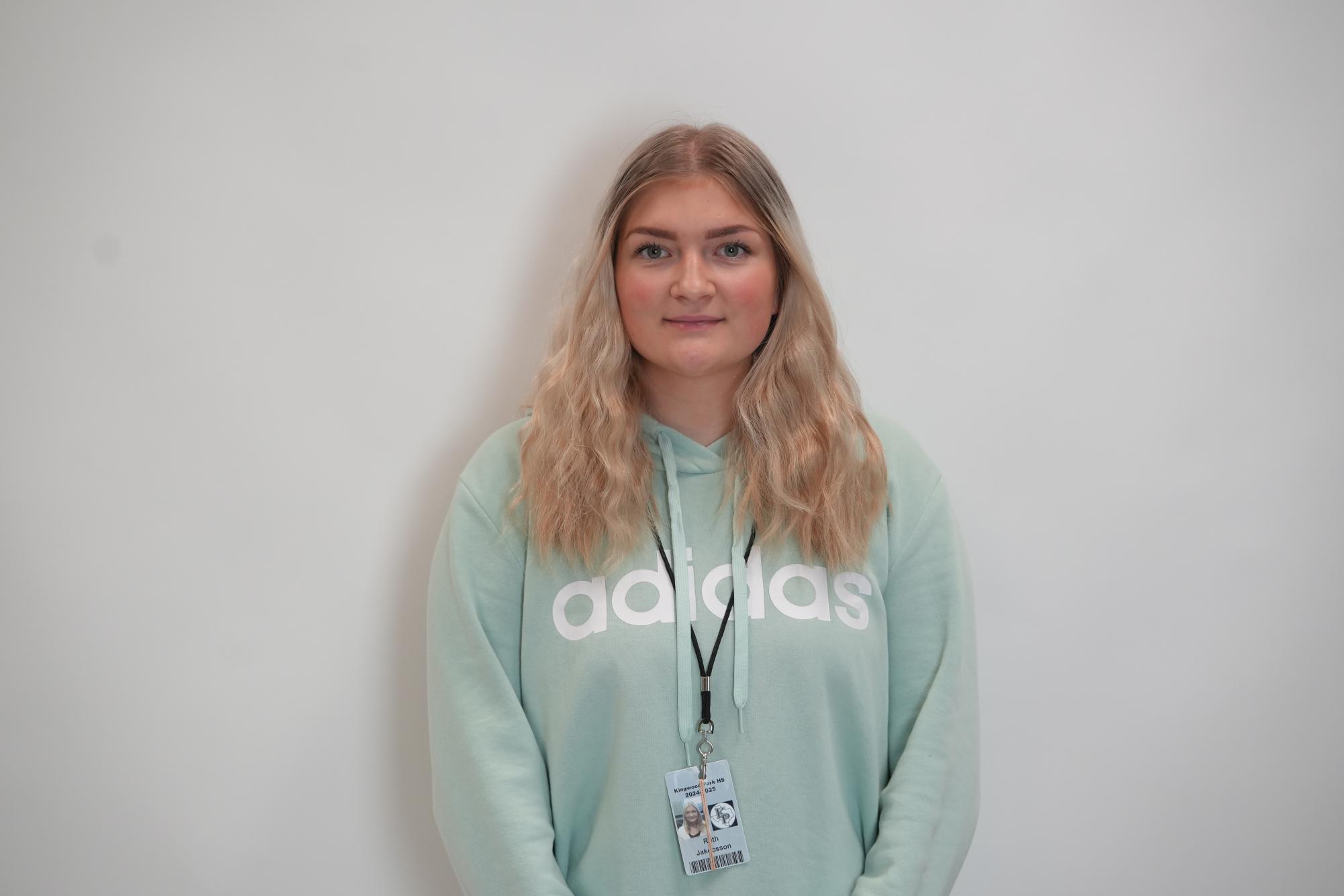
By Michelle Klanke
Swedish exchange student Maya Jakobsson celebrates Christmas with her family. On Dec. 24, the Jakobsson family begin their Christmas celebration by waking up at 7 a.m.
They go swimming because there are not many other people in their family, so they get the pool to themselves. After that they make dinner and Jacobsson’s extended family come with her 25 cousins.
At 3 p.m. they watch the Donald Duck Episode “From All of Us of You,” which is a tradition in Sweden. After that they eat dinner and the sweets they baked the day before.
When it is only the Jakobsson family, they read the Bible before opening their presents.
During December, most Swedish kids have Advent calendars with chocolate or self-made from their parents. In addition, the Swedish television makes every year a new Advents calendar series, where every day they release a new episode.
Jakobsson’s best Christmas memory is when she celebrated Christmas with her mom’s side of the family in Bolivia, because she has a huge family and it didn’t snow since it is on the other hemisphere.
“We don’t celebrate like Halloween or things like that as much as they do in the US,” Jakobsson said. “So we typically start like months before listening to music and like, starting decorating our houses and things like that.”
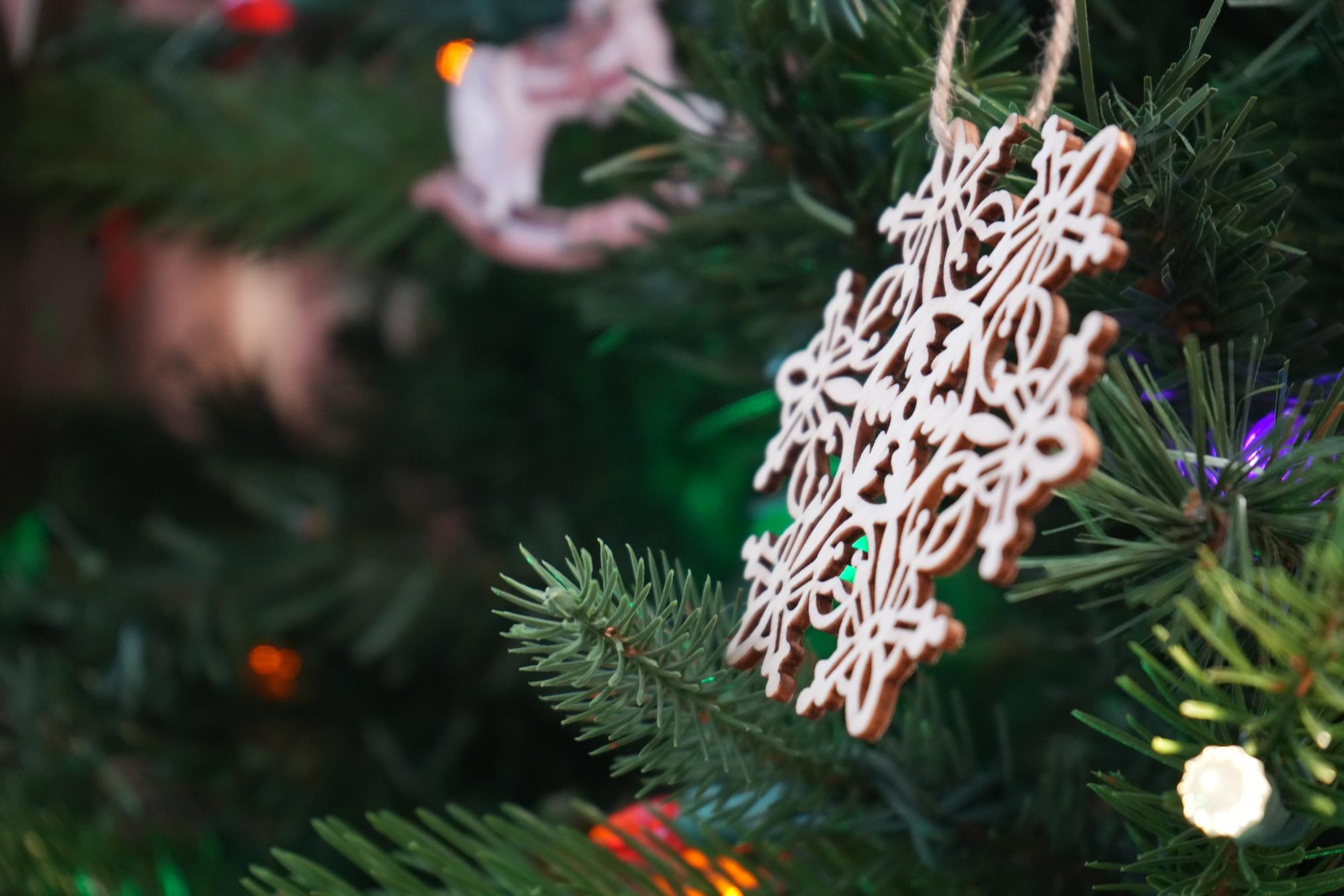
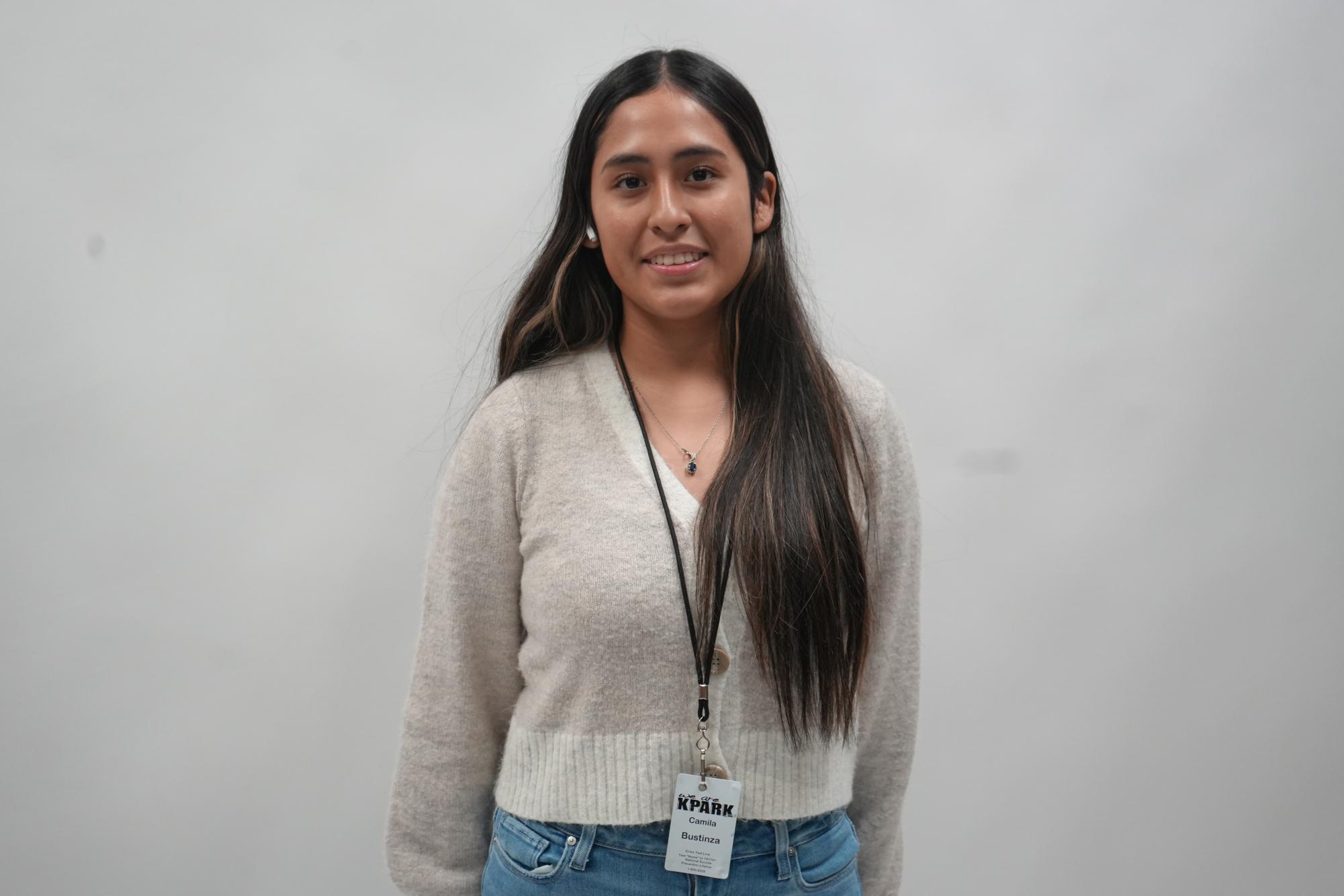
By Michelle Klanke
For freshman Camila Bustinza, the most memorable holiday is Christmas because since she was young, it has been a big deal in her family and she enjoyed every moment she had with her family. But it is different since she’s gotten older.
She added the most important holiday is Peruvian Independence Day on July 28.
To celebrate her family watches the parade on TV, which has military marching and dancers. They also eat good food. For Peruvian food they have ceviche, fish dish or Brasa, a dish with chicken, salad and potatoes.

By Olivia Brenner
For senior Sophia Nguyen, the holiday season means spending time with family. She enjoys both Christmas and Lunar New Year with her family, and they celebrate Christmas with a potluck-style family dinner and karaoke. She especially enjoys the time with her aunt and uncle and the games they play together, as well as going to see lights with her mom.
“I enjoy that a lot because it makes us feel more connected,” said Nguyen, whose family is Vietnamese. “Everybody’s just there to have a good time.”
Her family also celebrates Lunar New Year, which this year falls on Jan. 29. Lunar New Year is the celebration of the arrival of spring and the beginning of a new year, and it is celebrated in many east Asian countries, including Vietnam. On this holiday, elders give younger family members a red envelope with money, and both family members make wishes for one another.
“It’s a way for elder people and the younger people to have a sense of respect for each other,” Nguyen said.
There isn’t an age cut-off for “elders,” so in Nguyen’s family anyone can give an envelope to anybody younger than them. She has noticed generational differences in the wishes that accompany the envelopes. She said her younger aunt and uncle can connect better with her and the younger family members.
“I feel like whenever talking to my aunt and uncle, they really put a lot of thought into what they wish,” said Nguyen, “I feel like you connect more because you’re closer in age.”
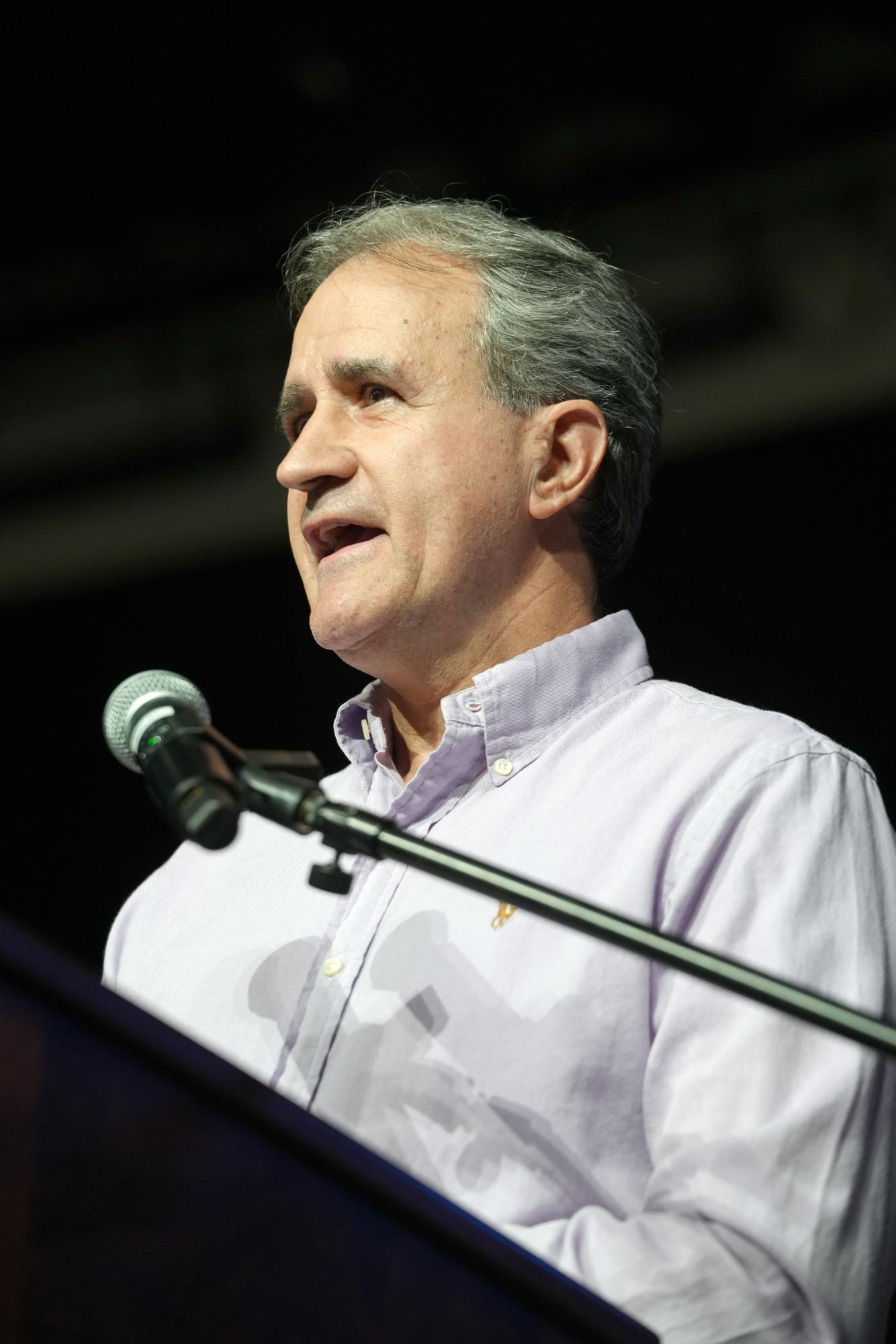
By Olivia Brenner
Health science teacher Dr. Kevin Caizley celebrates British holidays Boxing Day and Guy Fawkes Day. Boxing Day is celebrated the day after Christmas, and it is another day to spend with family and celebrate the Christmas season. Guy Fawkes Day, celebrated on Nov. 5, has a historical significance, and is often referred to as “Bonfire Night.”
Dr. Caizley also celebrates Christmas and New Year’s but with British twists, of course. Traditional British foods like Yorkshire pudding always make its way into his Christmas Day dinner menu. On New Year’s Eve, one member of the family goes outside right before 12 to be the first one to walk into the house when the clock strikes midnight. This is referred to as “first footing” in Northern England and Scotland.
“You’re basically bringing health and prosperity into the home as the first act of the New Year,” Caizley said.
For Guy Fawkes Day, or Bonfire Night, kids will spend the two or three months before the holiday gathering wood for the huge bonfires that burn all around England, Scotland and Wales. A week or two before the celebration, the bonfire starts being built. It is an opportunity for the community to come together and celebrate their history.
“Kids would build the bonfire, but all the community would come out and stand around the bonfire, and actually roast potatoes, too,” Caizley said. “If people have the opportunity to spend time in the UK, they need to do that.”

By Kaitlyn Sitton
Senior Kashikala Mundemba celebrates a traditional American and African Christmas. Mundemba and her family choose to donate and give back around this time of year. They donate to their local church and go on mission trips to Haiti.
“We’re more of a giving family than a receiving family,” Mundemba said, “so we always choose to donate.”
Another big part of the Christmas holiday for Mundemba is music. Singing African carols is a staple in her household. The family sings Swahili, English and occasionally French
“We love music,” Mundemba said. “One of my cousins can compose music, so we’ll all have different melodies and parts and sing together randomly on the spot.”

By Kaitlyn Sitton
Freshman Raisa Hulett celebrates a traditional Mexican Christmas. Hulett and her family make tamales on Dec. 23 to prepare for the big day. A party is always in store for Christmas Eve.
“On Christmas Eve, we have a big party with all my family,” Hulett said, “and we give gifts and eat traditional Mexican food and have fun.”
Family also plays a big role in Hulett’s Christmas traditions. They play games like loteria and make food together. The holiday wouldn’t be the same without her family.
“Family is your whole life when you’re Mexican,” Hulett said, “and without everybody, it would be kind of boring.”

By Kaitlyn Sitton
Junior Elena Amos celebrates a traditional El Salvadorian Christmas. Food is a big part of the tradition for Amos. The family makes Pan con Pollo, this has bread filled with chicken, cucumbers and boiled eggs.
“My family used to spend about two days cooking,” Amos said, “and the whole week they would buy a bunch of food for it.”
Another thing about Christmas for Amos is that her family celebrates on the 24th rather than the 25th. The family gathers for a big celebration on Christmas Eve and eats, opens presents and plays games.
“One thing that I really remember is me and my family staying up so late during Christmas Eve and opening presents,” Amos said. “Everybody was just throwing fireworks and we were playing soccer outside on the concrete.”
Your donation will support the student journalists of Kingwood Park High School. Your contribution will allow us to purchase equipment and cover our annual website hosting costs. The journalism program at Kingwood Park is funded solely from student sold advertisements and community support.






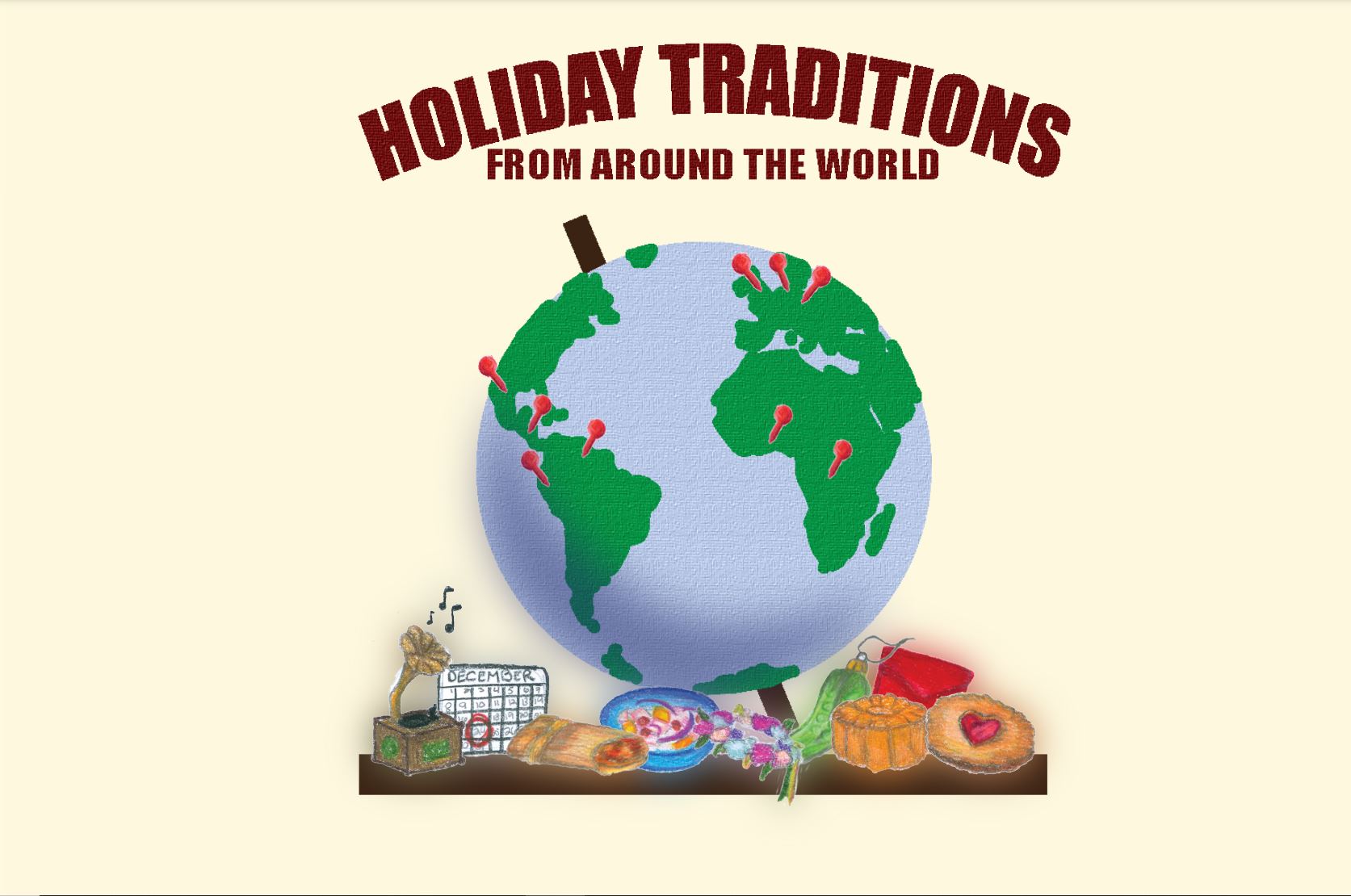

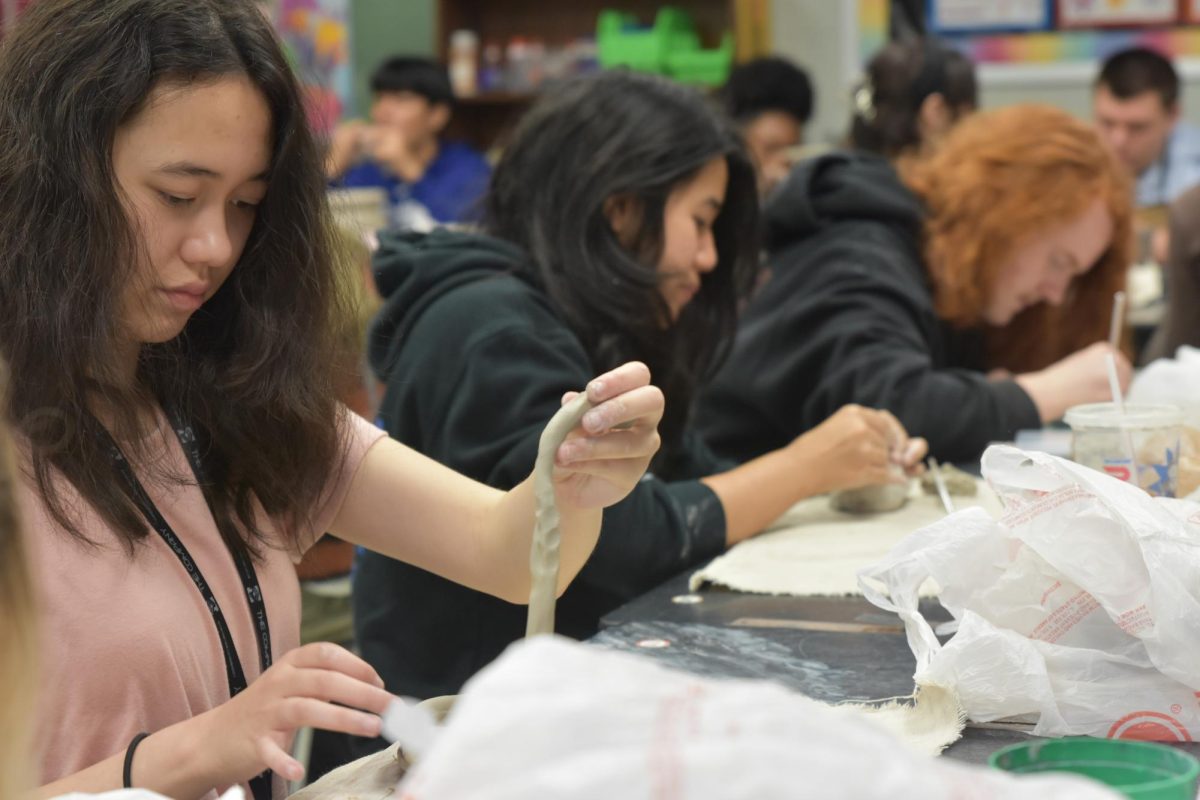


![[Video] How to play a D scale on the viola](https://kptimes.com/wp-content/uploads/2025/10/1000032387-1200x800.jpg)
